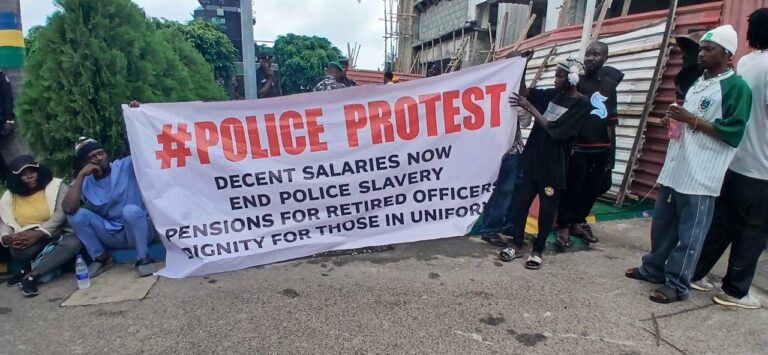Across Nigeria, the practice of sealing off homes, shops, and offices by government agencies and even private individuals has become increasingly common. From tax enforcement to rent disputes, premises are often locked up in the name of regulatory compliance. However, many of these actions happen without a valid court order making them unlawful and unconstitutional.
In legal terms, this amounts to “self-help” an act where a person or institution enforces a perceived right or penalty without judicial authorization. This approach is not only crude but has been repeatedly struck down by Nigerian courts as illegal. In the landmark case of Military Governor of Lagos State v. Chief Emeka Odumegwu Ojukwu (1986), the Supreme Court condemned such actions as “executive lawlessness,” stressing that even the state must operate within the confines of the law.
Recently, the Minister of the Federal Capital Territory, Nyesom Wike, ordered the sealing of several offices including the PDP Secretariat and the FIRS office, citing urban planning violations. These closures, carried out without a court order, sparked widespread outrage and were widely condemned as unconstitutional. President Bola Tinubu later stepped in, suspending the enforcement and allowing a 14-day grace period for affected parties. His intervention underscored the importance of due process, public accountability, and the need for legal oversight before properties are shut down.
Numerous laws in Nigeria empower agencies to regulate and enforce compliance such as the Urban and Regional Planning Act (1992), tax laws, and public health regulations. However, these powers are not absolute. Enforcement must follow due process, including proper notice and a right to be heard. Without this, any action to seal off a property becomes invalid and can be challenged in court.
According to the Nigerian Constitution specifically Sections 36, 43, and 44, every citizen is guaranteed the right to fair hearing, the right to own property, and protection from illegal seizure of their property. These rights are also recognized under the African Charter on Human and Peoples’ Rights, which Nigeria has ratified.
Nigerian courts have been consistent in their position: No agency, public or private can seal off any premises without first obtaining a valid court order. For instance, in National Concord v. Attorney-General, armed soldiers sealed off the newspaper’s premises under military rule. The court declared it unlawful, awarded ₦500,000 in damages, and ordered the reopening of the premises. In another case, Punch Newspapers v. Federal Government (1994), the military shut down Punch’s office and arrested its editor. The court condemned the action and awarded ₦25 million in damages.
In Fayose v. EFCC, the EFCC sealed off the Ibadan residence of former Governor Ayo Fayose without a court order. The court ruled it illegal and awarded ₦10 million in damages. In Association of Motor Dealers v. Nigeria Customs Service, the Customs Service was ordered to pay ₦500 million in damages after illegally sealing off over 400 car dealerships without judicial authorization.
The Supreme Court in Union Bank v. Ajabule (2011) ruled that no entity has the right to enforce claims through self-help, regardless of how genuine the claim may seem. Similarly, the Court of Appeal in Eze v. Spring Bank Plc (2011) stated that locking up business premises without legal backing is trespass and a breach of property rights.
Sealing a business or home is a serious action with significant consequences. It’s not merely an administrative task, it is coercive and must be done through judicial process. Even if a government agency has a valid claim-be it unpaid taxes, rent, or regulatory violations, it must first secure a court order before taking such drastic action.
In the case of Attorney-General of Lagos State v. Attorney-General of the Federation (2004), the Supreme Court warned against the dangers of executive overreach. Justice Niki Tobi (of blessed memory) noted that in a democracy, all grievances must be resolved in court—not through force or intimidation.
Whether by government authorities, private individuals, or corporations, sealing off premises without judicial approval remains unlawful. Nigeria is a country governed by laws, and every enforcement action must pass through the courts. To ignore this is to flirt with anarchy and erode the very foundation of democracy, the rule of law.





